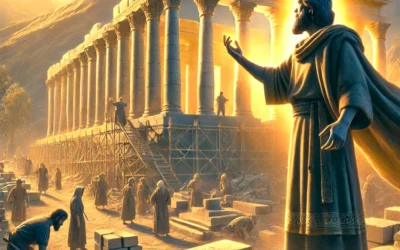The Book of Leviticus is the third book of the Bible and serves as a manual for holiness.
It contains God’s laws given to the Israelites through Moses, focusing on sacrifices, purity, worship, and moral living.
While it may seem full of rituals and rules, Leviticus teaches the importance of holiness and obedience to God.
Let’s explore the major themes and key lessons from Leviticus.
1. The Purpose of Leviticus
Leviticus was written to teach Israel how to live as God’s holy people.
It outlines sacrifices, priesthood duties, purity laws, and moral codes to maintain a close relationship with God.
Key Theme: Holiness – God calls His people to be set apart.
Lesson: Obedience to God leads to blessing and fellowship with Him.
2. The Five Offerings & Sacrifices (Leviticus 1-7)
God establishes five key sacrifices for worship and atonement.
Key Offerings:
- Burnt Offering – Total dedication to God.
- Grain Offering – Thanksgiving for God’s provision.
- Peace Offering – Celebrating fellowship with God.
- Sin Offering – Atonement for unintentional sins.
- Guilt Offering – Restitution for wrongdoing.
Lesson: Sacrifices foreshadow Jesus, who is our ultimate sacrifice for sin.
3. The Role of the Priesthood (Leviticus 8-10)
God appoints Aaron and his sons as priests to offer sacrifices and intercede for the people.
Key Highlights:
- Priests must be set apart and follow God’s commands.
- Nadab and Abihu (Aaron’s sons) offer unauthorized fire and are struck down by God.
Lesson: Approaching God requires obedience and reverence.
4. Clean and Unclean Laws (Leviticus 11-15)
Leviticus distinguishes between clean and unclean things to teach Israel purity and holiness.
Key Laws:
- Clean vs. unclean animals (dietary laws).
- Purification after childbirth.
- Laws for skin diseases and bodily discharges.
Lesson: God’s laws teach us the importance of purity in worship and daily life.
5. The Day of Atonement (Leviticus 16)
The Day of Atonement (Yom Kippur) is the most critical ritual in Leviticus, where the High Priest makes atonement for the nation’s sins.
Key Highlights:
- The High Priest enters the Holy of Holies once a year.
- A scapegoat carries Israel’s sins into the wilderness.
Lesson: This points to Jesus, who became our ultimate atonement for sin.
6. Holiness in Everyday Life (Leviticus 17-27)
God commands His people to live holy lives, covering moral laws, festivals, and blessings for obedience.
Key Laws:
- Moral purity – Avoiding idolatry, sexual sin, and injustice.
- Love your neighbour as yourself (Leviticus 19:18).
- Holy feasts – Passover, Sabbath, and other festivals.
Lesson: Holiness is not just about rituals but also about how we treat others.
7. Blessings and Curses (Leviticus 26)
God promises blessings for obedience and judgment for disobedience.
Lesson: God rewards faithfulness but disciplines disobedience to bring His people back to Him.
Final Thoughts
The Book of Leviticus may seem complex, but its message is clear: God desires holiness and obedience. While the sacrifices and laws were for Israel, they foreshadow Jesus Christ, who fulfilled the law and became our ultimate sacrifice.





